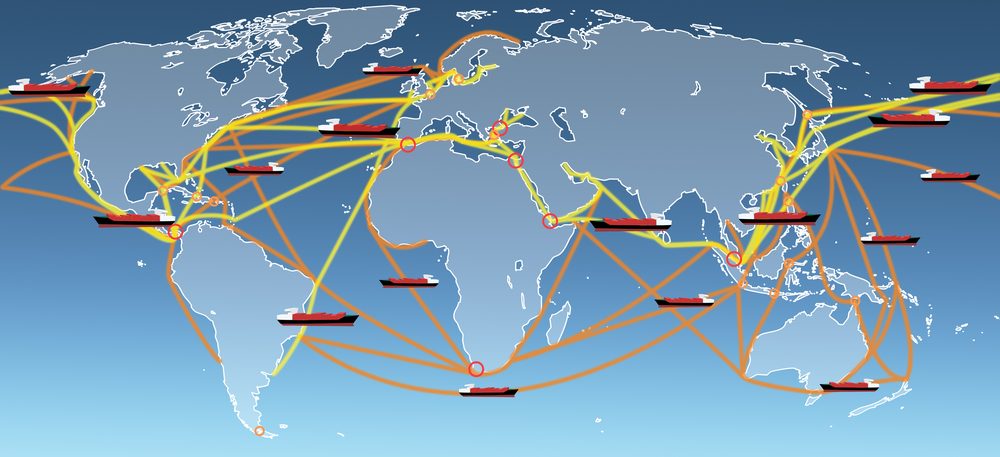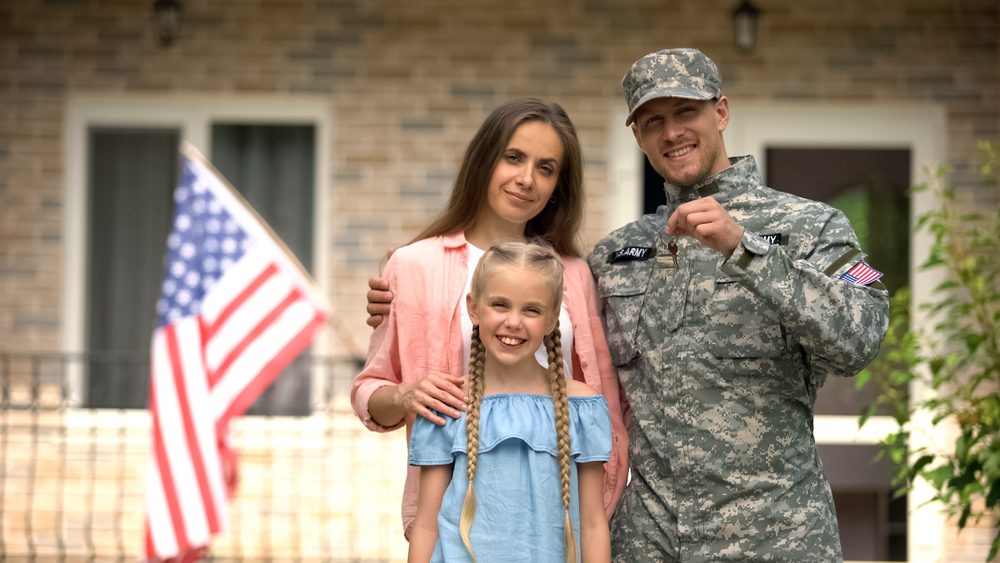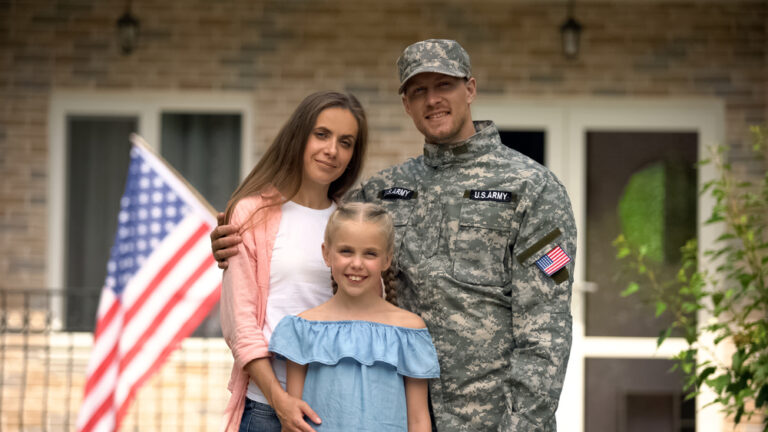If you joined the military to see foreign lands and absorb new cultures, the news that you’re being deployed overseas is amazing. You can’t wait to start this new chapter in your life and career. Yes, you’re going to have to deal with all of the stress that comes with packing up your belongings and moving to a new country. But this is the chance of a lifetime and you want to make the most out of it.
How do you do that?
By learning as much as you can about OCONUS deployment before you ship out.
This guide explains what OCONUS deployment is, how it differs from CONUS deployment, and what you need to do to prepare for your new overseas service life.
What Is OCONUS?
OCONUS stands for “outside the continental United States.” It’s the term used to describe any deployment that takes you away from American soil. Typically, these deployments go hand-in-hand with a Permanent Change of Station (PCS), which means you’ll move overseas for an extended period. However, your OCONUS deployment may also be more temporary.
Therefore, OCONUS and overseas deployments are the same things. And as a member of the United States military, you have to be prepared for the PCS that takes you overseas at any given moment. Simply put, this deployment works the same way as any other order you receive. You’re told it’s time for an OCONUS military assignment and you start making preparations to move.
How Does OCONUS Differ From CONUS?
CONUS refers to the contiguous United States. This covers most of the United States, in addition to the District of Columbia. OCONUS refers to any territory outside of the contiguous United States. This includes any international territory, as well as Hawaii and Alaska.
Generally speaking, an overseas deployment involving a PCS lasts for 36 months if you’re accompanied by family or 24 months if you’re unaccompanied. Hawaii and Alaska are exceptions here, as tours tend to last for 36 months whether you’re accompanied by family or not. Of course, your PCS may extend depending on the orders you receive.
The Two Key Stages of an OCONUS Deployment
You can break an OCONUS deployment down into two stages:
- Before the move
- Making the move
Before the Move
You’ll usually receive unofficial PCS orders before you get your official orders. Unofficial orders usually come via email, a phone call, or through a direct conversation with your supervisor. Take the receipt of these unofficial orders as a cue to start your preparations, though you should hold back on committing to the move until you receive official orders.
The two key things to do at this stage are gathering your travel documents and arranging Family Member Relocation Clearance (FMRC).
You must ensure that you and any dependents have personal passports. While you’ll be issued a military passport as part of your deployment, you require a personal passport for any traveling you do outside of direct orders. It’s worth researching your new location’s visa requirements. While your visa is likely taken care of as part of your deployment paperwork, your dependents may have to complete additional paperwork to undertake the move with you. Speak to your local transport office for confirmation.
FMRC serves the practical purpose of ensuring that your new duty station can support the educational and medical needs of your dependents. Start the FMRC process as soon as you receive unofficial orders. Your hard orders won’t arrive until each of your dependents is cleared to move with you. Schedule appointments with your doctor and dentist for dependents as soon as possible.
Once your official orders arrive, you’re almost ready to start planning your move. Before you do, check the orders closely. Look for any mistakes in names, Social Security numbers, and dates of birth. It’s a good idea to confirm your duty station and reporting dates. Failure to spot errors early can lead to issues that delay your deployment or the arrival of your family. Make several copies of your official orders so you always have them available.
Finally, you may begin inquiring about any PCS benefits available to you during this early stage. It’s also a good idea to start collecting quotes from military movers, though you shouldn’t commit to using anybody until you receive your official orders.
Making the Move
Whether this is your first OCONUS deployment or you’re preparing for an OCONUS to OCONUS PCS, making the move is always stressful. Even experienced personnel may find themselves overwhelmed with everything they have to do to make their move as smooth as possible.
The good news is that there are some useful tips and tricks to make this part of the process easier.
Tip No. 1 – Create an Inventory
You won’t realize how much stuff you own until you’re preparing for an OCONUS army deployment. The military pays to transport your household goods (HHGs) as part of the move. However, you must stick to strict weight limits, which vary depending on your pay grade and the military branch you belong to. Going above these weight limits means you have to deal with out-of-pocket expenses for the additional weight.
You can get ahead of these challenges by creating an inventory.
List all of the HHGs you have at your current location, including any serial numbers or warranties that apply to them. It helps to take photos, which you can use as evidence of an item’s condition if it gets damaged in transit. With your list complete, divide it into items you can leave behind and those you need to take with you. For the latter items, you’ll create a packing list that we’ll discuss below.
Tip No. 2 – Create a Moving Binder
OCONUS deployment requires a lot of documentation, especially if you’re moving with dependents. A moving binder allows you to keep all of your important documents in a single location, making them easier to access.
Start work on your binder as soon as you receive your official OCONUS orders. Add copies of your orders, in addition to copies of identifying documents like your birth certificate, Social Security documents, and marriage records. Add any additional documents as you go through the various approval processes related to your deployment.
Tip No. 3 – Create a Packing List
The inventory you made earlier comes in handy when creating your packing list. Think of this as a checklist of the items you’re going to take with you. Divide the list into three categories:
- Carry-On – These are the items that you’ll keep on your person during the move. They include your moving binder, a change of clothes, any medications you take, and toiletries. Keep this list light, simple, and focused on the essentials.
- Household Goods – This category accounts for the majority of the items you’ll transport to your new PCS. Key here is that your HHGs take a few weeks to arrive at your destination, meaning you have to live without them for a while. Non-essentials go into this category, such as furniture, books, and games.
- Unaccompanied Baggage – Any items you need immediately but don’t want to carry onto your transport go into this category. Unaccompanied baggage is expedited to your location so you have it available as soon as possible. Cooking tools, bedding, and seasonal clothing are good items to add to this list.
Tip No. 4 – Find a Suitable Moving Company
The military generally doesn’t handle your move for you. Instead, you’re responsible for finding appropriate movers, which the military reimburses you for after your move.
Focus on experience and an established track record of successful transports when searching for military movers. Your moving company must understand the challenges that come with OCONUS and overseas shipping. Ideally, it will also be able to help you pack your items and secure the documentation required for the move.
Tip No. 5 – Connect With Your Sponsor
You’re usually assigned a sponsor as part of an OCONUS deployment. If you aren’t, speak to your supervisor about getting one. A sponsor is a member of the military who already lives in the location your orders assign you to. Think of them as a first-hand resource for what you can expect after making the move. Sponsors can answer questions about the area and help you to acquire any goods you’ll need once you’ve moved. Your sponsor may be one of the first people who greet you when you arrive and may spend a couple of weeks helping you to get acclimated.
Stay in close contact with your sponsor as you prepare for your OCONUS move. The better the relationship you have with your sponsor, the more they’ll be willing to help you out.
Frequently Asked Questions About OCONUS Deployment
Can I Bring My Pet on Deployment?
This depends on your duty station’s policies. Some don’t allow pets at all whereas others allow them as long as you follow certain quarantine procedures. Contact your transportation office to find out if your new base allows pets.
Assuming you can bring a pet, the military may reimburse you for any costs related to mandatory quarantines up to $550. You might find that some airlines won’t allow you to transport pets during summer due to the possibility of heat exposure.
Can I Get an Overseas Driver’s License?
You can as long as you have a valid U.S. driving license. The overseas license you receive is conditional and based on your American license. As a result, it expires on the same date. Renew your U.S. license before traveling overseas to ensure you don’t have to worry about handling paperwork during your deployment. As a side note, make sure you carry both your U.S. and overseas driving licenses. You’ll need both when driving.
Can I Ship a Vehicle?
The Department of Defense (DOD) will pay to ship a privately owned vehicle (POV) for most OCONUS deployments. But some locations, such as Japan, don’t allow you to have a POV. In these cases, the DOD reimburses you for the cost of storing your vehicle while you’re away.
It’s a good idea to have your vehicle cleaned by professionals before arranging to ship. Many countries have agricultural regulations in place that prohibit certain substances from being carried in on the items you transport. Ensuring your vehicle is clean reduces the risk that it will be delayed or impounded due to carrying contaminants.
What Is a Command Sponsorship?
Command sponsorships come into play if you’re moving overseas with your family. If you haven’t received Accompanied Orders that state your family is coming with you, you have to get a command sponsorship.
Command sponsorships ensure you’re reimbursed for your children’s housing and travel expenses. They also ensure your family has access to relevant educational and medical services, in addition to ensuring your children can stay in your host country without requiring a visa. Note that requests for command sponsorship may be denied if your host country doesn’t provide suitable educational and medical services.
What Should I Do With My House/Apartment?
This depends on your circumstances.
If you live in rented accommodation, inform your property manager or landlord that you’re leaving. Provide them with a date you wish to end your lease. You may have to continue paying rent if you’re in an unbreakable lease that extends past your deployment date. Make sure you cancel any subscriptions, memberships, and utilities that you won’t use while deployed.
If you own the house or apartment, you can sell it or lease it while you’re away. Of course, you can continue paying the mortgage if you wish to keep the property. These decisions likely won’t be an issue if you don’t bring your family during your OCONUS deployment.
Make Sure You’re Ready to Move Overseas
You always knew that your career in the military could involve living overseas for extended periods. When you received your OCONUS PCS order, you’ll likely experience a mixture of trepidation and excitement. Proper preparation ensures you get your ducks in a row before the move. The advice in this article helps to make the move as smooth as possible. Remember that your local transportation office provides guidance on which PCS benefits you can access, in addition to access to various resources.
Once you’re ready to move, you need a transportation company that can ship your HHGs and vehicle to your new location. With over 30 years of experience helping military personnel move domestically and overseas, Military Movers should be your first choice. We offer packing, unpacking, and storage services that help you get set up and ready for your overseas assignment. Contact our team online or call 866-226-1441 to discuss your move.






